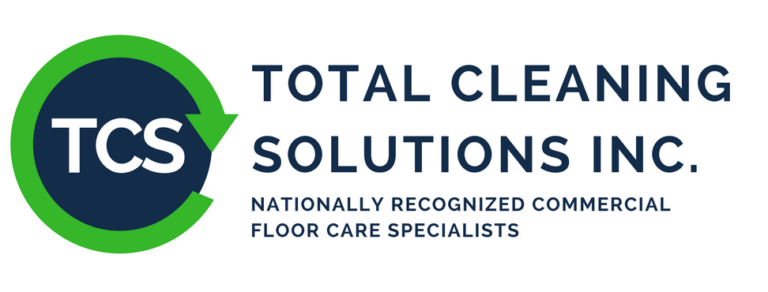Every commercial floor gets damaged eventually. Some experience signs of wear and tear sooner, others do so later. Be that as it may, the outcome is always the same in the end. It all comes down to circumstances.
For example, a hospital floor experiences heavy foot traffic every day, but not much else. On the other hand, an industrial warehouse or a factory is a completely different story. These commercial spaces experience vehicle traffic, chemical spills, impact damage, and other things aside from foot traffic.
Now, imagine you’d have to replace an entire floor every time it gets significantly damaged, which happens more often than people realize.
That would simply be illogical and expensive. That is exactly why commercial concrete floor coatings were invented to protect floors from substantial damage, so you won’t have to replace them every now and then.
Instead, you can replace or renew the coating while the floor remains intact for decades. Speaking of which, there are different concrete coatings that serve different purposes. Why don’t we go over them all and see what makes them tick? Let’s get to it then.
Types of Concrete Floor Coatings
- Epoxy coatings and sealers.
- Acrylic coatings and sealers.
- Polyurethane coatings.
- Polyaspartic coatings.
- Urethane cement coatings.
- ESD (Anti-static) coatings.
- MMA (Methyl Methacrylate) coatings.
1. Epoxy Coatings and Sealers
There’s a very good reason why epoxy is one of the most sought-after floor coatings in the market today. First and foremost, epoxy raisins combined with hardening agents can be used as both concrete sealers and floor coatings, making epoxy a versatile option, indeed.
But the benefits don’t end there. As a matter of fact, the epoxy concrete sealer is very well known for its durability, resistance to moisture, resistance to damage, and simplicity. In other words, it’s very easy to apply and replace when needed.
To top it all off, epoxy is not only quite affordable but it’s also one of the best decorative concrete coatings in the world. You can pick any color, pattern, or do some combining of your own to make your floor truly unique. Think of it as an all-in-one solution to your commercial space floor.
2. Acrylic Coatings and Sealers
Similar to epoxy, acryl is a compound that can be used as both a coating and a sealer for your floor. However, acrylic coatings and sealers are only short-term solutions that add a very thin layer of protection to floors.
That doesn’t undermine their capabilities, though; it’s just that they’re not as lasting as some other solutions. In terms of quality, the acrylic concrete sealer is durable, flexible, and highly resistant to all sorts of damage. The only downside is that it has to be replaced rather often.
But, it’s very affordable and probably one of the cheapest solutions on the market, which is why it’s commonly used in commercial spaces.
Like epoxy, acrylic coatings can be very decorative, meaning you can choose different patterns or colors to breathe a bit of aesthetics into your floor. Moreover, acrylic coatings and sealers are either solvent-based, which are perfect for outdoors, or water-based, which are best suited for indoor floors.
3. Polyurethane Coatings
If you find epoxy to be slightly over your price range or more difficult to maintain, don’t worry, as there are always concrete floor coatings that can serve as an alternative. In this case, the polyurethane coating is one such alternative.
The quality is almost as good as epoxy, and the price is slightly lower. However, polyurethane coatings come with added features, such as resistance to UV light, anti-corrosion, and shorter curing time.
Objectively speaking, this is a great compensation for lower quality. Still, polyurethane has issues bonding with concrete, so it cannot be used as a sealer, only as a topcoat.
4. Polyaspartic Coatings
If you value speed above all else, then you should definitely consider polyaspartic coatings for your floor. Arguably, polyaspartic coatings are more durable than epoxy, and they can dry very fast, ensuring the quickest return to service.
The main reason this coating is so effective is that it’s not actually a polymer but a hybrid designed to withstand even the toughest conditions in any commercial space. However, this coating is more expensive than epoxy and has limited color options.
In other words, it’s one of the greatest polished concrete coatings, but not very aesthetically pleasing. One disadvantage stands out, though, and it’s slipperiness.
In fact, when wet, polyaspartic coating can be extremely slippery, which can mean a serious hazard if spills are not addressed immediately.
Therefore, if chemical, oil, or water spills are quite common in your commercial space, then it’s not very advisable to use polyaspartic coatings for your floors.
5. Urethane Cement Coatings
What happens when you combine the flexibility of urethane and the toughness of cement? Well, you get one of the best industrial concrete coatings there is.
Modified urethane is very elastic, so when you add cement, water, and aggregates to it, you get a very durable floor coating that can withstand pretty much any impact damage, chemical spill, or heavy foot and vehicle traffic.
Not only that, but urethane cement coating is low-cost and easy to implement, which makes it very desirable in both commercial and industrial spaces.
Furthermore, this coating often has no odor or VOCs (Volatile Organic Compounds) whatsoever, making it ideal for hospitals and other medical facilities, due to its hygienic and antimicrobial capabilities.
6. ESD (Anti-Static) Coatings
Facilities with lots of machines and electronics often experience static discharges that can potentially prove to be very hazardous for both employees and the equipment itself.
In order to prevent injury to personnel and malfunctions of expensive equipment, many commercial and industrial spaces install application-specific floor coatings, such as ESD (Electrostatic Dissipative) floor coatings, or simply anti-static floor coatings.
As you may already know, any machine or electronic component that runs on electricity builds up static charge over time. Add foot friction to the equation, and you have an accident waiting to happen.
ESD coating, therefore, is quite necessary in such an environment, mainly because this type of coating provides conductive elements that allow static to be directed into the ground where it can be safely discharged.
However, this coating doesn’t add any additional protection or durability for the floor itself. It’s, as mentioned before, application-specific, which means it needs to be added on top of another coating that will protect the floor.
7. MMA (Methyl Methacrylate) Coatings
In an effort to create the perfect coating solution for floors, scientists will experiment with all sorts of things to get the best result. MMA coatings were intended to be such a solution, but failed short on several factors.
As a matter of fact, methyl methacrylate is an acrylic resin-based solution that has one of the fastest curing times known to man. That said, MMA coating can cure within just two hours, and it can do so in temperatures ranging between -20 degrees to 80 degrees Fahrenheit, which is extremely versatile by any standard.
Moreover, there’s no need for any prep work. In other words, you don’t have to remove existing materials from the floor nor grind or brush the floor to even it out. The acrylic resin properties are strong enough so that coats bond with each other to create a unified surface. This is all thanks to the process called polymerization.
However, applying MMA coating requires precision and expertise, meaning you can’t make a mistake or you’ll have to start over.
In addition to the specific application process, MMA produces strong odors and fumes, which means the room cannot be occupied during the application, and workers need safety gear to prevent exposure.
Although impervious to spills, dirt, and grime, an MMA coating isn’t very impact resistant, so try not to drop anything heavy on it or it may crack.
Choose the Best Floor Coating with TCS Floors

Choosing the right coating or sealer for your concrete floors is not an easy decision to make. There are many options out there, and each solution has its own unique advantages and disadvantages.
That’s why you sometimes need a bit of professional help to point you in the right direction. Here at TCS Floors, we know everything about floor coatings and sealers.
Aside from having more than 30 years of experience in cleaning and maintaining commercial floors, we can also provide insight into how to choose the best solution for your floor and what to do with it afterward.
Therefore, don’t hesitate to give us a call today and let us help you out. In the meantime, don’t hesitate to check out our previous work and see for yourself that we can both talk the talk and walk the walk.
Final Thoughts:
There is no right or wrong choice to make when choosing commercial concrete floor coatings for your space.
Everything comes down to your needs in the end. In other words, the best option is one that will match expectations, whether it’s about the price or quality.
Simply put, every floor coating will get the job done; the only actual difference is that they each have a specific purpose.
FAQ:
What is the best concrete floor coating?
That entirely depends on what you need. As mentioned before, every floor coating serves a different purpose.
That said, if you want an option that is somewhat of an all-purpose solution, so you don’t have to go into any specific detail, then epoxy concrete sealers and coatings are the safest bet.
What’s the best floor covering for a concrete floor?
Floor covers for concrete floors come in all shapes and sizes. Therefore, the one you should choose depends on what type of commercial or residential space your concrete floor is in. In any event, your best choices are laminate, luxury vinyl, hardwood, ceramic tiles, and so on.
What is the best finish for a concrete shop floor?
Depending on what type of shop you run, it’s safe to assume there’s heavy foot traffic. That said, instead of pondering which finish is the best, you should simply go for polished concrete.
The main reason is that concrete is durable and resistant enough on its own; polishing it and perhaps adding a layer of wax should meet your shop’s needs quite effectively.
What are the different types of industrial floor coatings?
Industrial floor coatings are commonly used to provide concrete floors with an extra layer of protection from numerous sources. The different types of floor coatings that are most often used are:
- Epoxy
- Acrylic
- Polyurethane
- Polyaspartic
- Urethane cement
- Anti-static (ESD)
- Methyl methacrylate (MMA)
